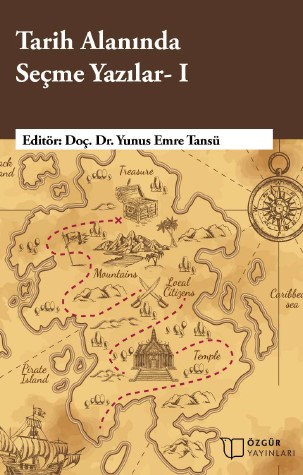Osmanlı İmparatorluğu Merkez-Taşra İlişkilerinde Mahkemeler: Adli Statü, Görevliler ve Davalar
Courts in Central-Provincial Relations in the Ottoman Empire: Judicial Status, Officials and Cases
Author(s): Berces Kılıç
Subject(s): History of Law, Government/Political systems, The Ottoman Empire, Sharia Law
Published by: Özgür Yayın Dağıtım Ltd. Şti.
Keywords: The Ottoman Empire; Courts; history of law;
Summary/Abstract: In this article, which was written with the aim of shedding light on the legal history of the Ottoman Empire in the context of central-provincial relations, being aware of the view that "There is no unspoken word under this dome" and aiming to capture "a pleasant sadâ that remains in this dome", this article deals with the courts, which are the basis of the Ottoman justice mechanism. In this context, after making a brief introduction to the establishment of social life and relations, which form the bridge between elements of the state and the the reaya and which takes its essence from Islam, the factors of the Ottoman court, their areas of influence and jurisdiction and some cases heard in this court will be included in the study. In the Ottoman court, first of all the muslim judges (kadi), the regents (naib) appointed by the muslim judges, the imams who are the eyes and ears of the muslim judges in the neighborhoods, the subasis who constitute the police force of the districts, the prohibitionists (ases), the castle guards (dizdars) and the muhtesibs are connected to each other through a network of relations. In our study, based on this network, the roles of these officials, who are shown among the main Ottoman court officials, will be discussed. In the understanding of the Islamic and Ottoman state, in which each of these officials played an active role, the justice mechanism shows a political integrity. However, within this mechanism, a spatial distinction is made in the form of kaza, nahiye and mahalle. This distinction is intended to facilitate the functioning of the justice mechanism. As it comes to an end, it shows the diversity of litigation issues reflected in the courts in Ottoman society. Therefore, the approach to the The foundations that undertook important missions in many fields in the Islamic states reached their peak in parallel with the development of the governments, especially with the Ottoman Empire. Correspondingly, there were changes also in their activities and management methods. In Islamic law where interest is not taken kindly, using the montes pietatis as a means of trade and charity for the good of the people was one of the changes mentioned. In spite of the arguments and criticism about the montes pietatis, most of the ulama of that period mentioned that this process was a kind of trade that could be briefly described as buying for cash and selling on trust, and they issued fatwa on that it was in accordance with Islamic Sharia. With this structuring that is ratified, banking business in Islamic states was founded, and the people fulfilled their need of cash from these foundations instead of usurers.
Book: Tarih Alanında Seçme Yazılar- I
- Page Range: 131-150
- Page Count: 20
- Publication Year: 2023
- Language: Turkish
- Content File-PDF

